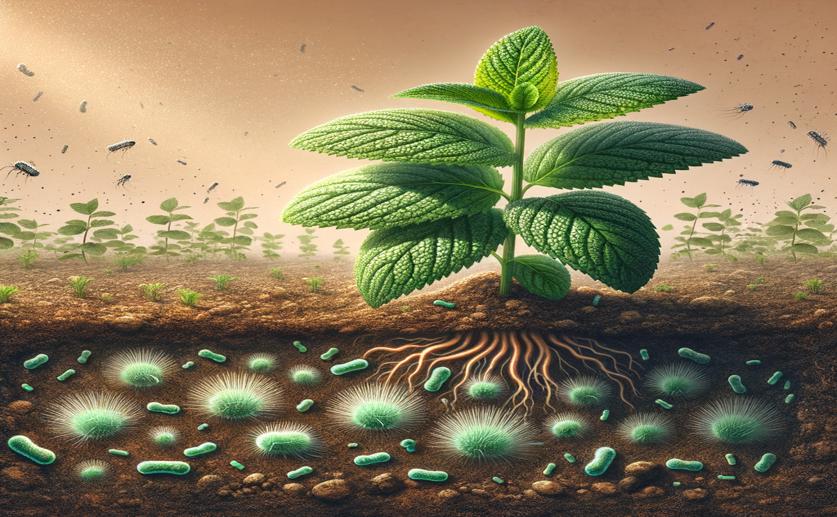
Boosting Soil Nitrogen and Lemon Balm Harvest with Special Bacteria
Jenn Hoskins
28th March, 2024

Image Source: Natural Science News, 2024
Key Findings
- In Vietnam, PNSB bacteria boosted lemon balm growth and soil nutrients
- Lemon balm treated with PNSB had 23% more essential oil, even with less fertilizer
- PNSB could help reduce chemical fertilizer use, benefiting the environment
BiochemPlant ScienceAgriculture
References
Main Study
1) Improving nitrogen content in soil and lemon balm (Melissa officinalis L.) yield by purple nonsulfur bacteria Rhodopseudomonas palustris in two consecutive seasons.
Published 27th March, 2024
https://doi.org/10.1007/s10123-024-00515-9
Related Studies
2) Enhancement of growth and yield of tomato by Rhodopseudomonas sp. under greenhouse conditions.
3) Effect of lemon balm (Melissa officinalis) extract on growth performance, digestive and antioxidant enzyme activities, and immune responses in rainbow trout (Oncorhynchus mykiss).



 17th March, 2024 | Greg Howard
17th March, 2024 | Greg Howard